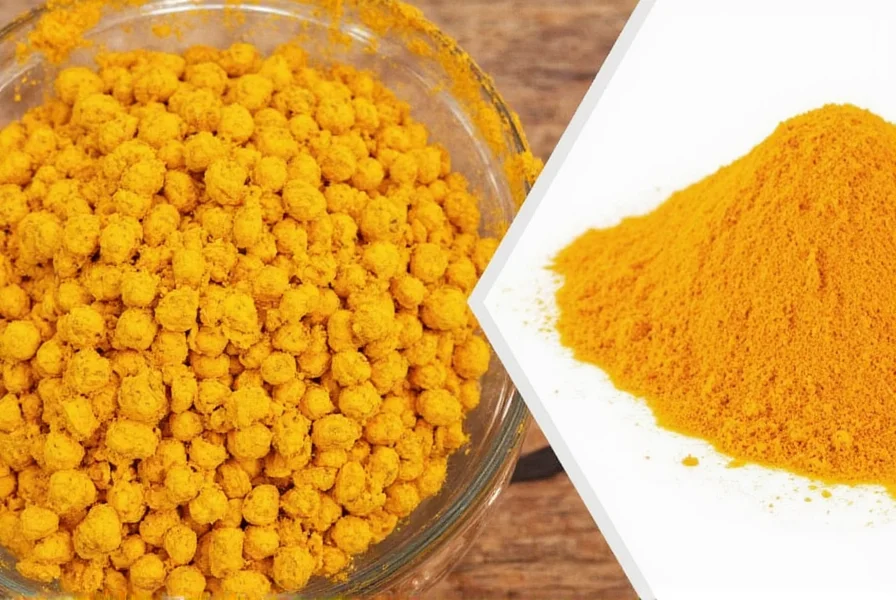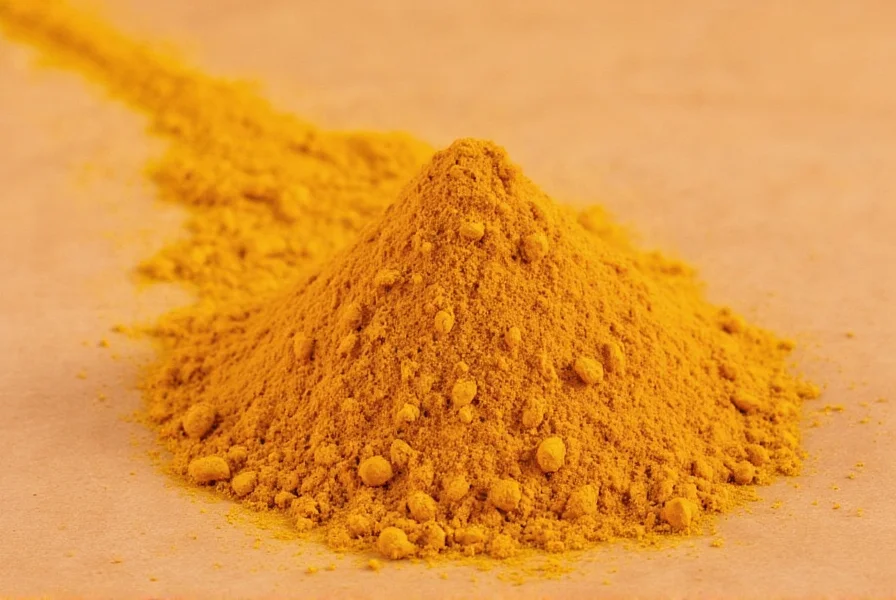Known for its vibrant golden color and potential health benefits, turmeric has become a staple in kitchens and supplement cabinets worldwide. However, as with many natural compounds, there's a threshold where benefits may give way to potential risks. Understanding the appropriate consumption levels is crucial for safely incorporating this spice into your wellness routine.
Understanding Turmeric and Its Active Compound
Turmeric, a member of the ginger family, contains curcumin as its primary active compound, responsible for most of its studied health benefits. While traditional culinary use typically involves 1-3 grams of turmeric powder daily, modern supplement formulations often deliver concentrated curcumin doses that require more careful consideration.
Health Benefits of Moderate Turmeric Consumption
When consumed in appropriate amounts, turmeric offers several potential health benefits supported by research:
- Anti-inflammatory properties that may help reduce chronic inflammation
- Antioxidant effects that combat oxidative stress
- Potential support for joint health and mobility
- Possible cognitive benefits and neuroprotective effects
- Support for digestive health when used culinarily
These benefits are most effectively realized when turmeric is consumed with black pepper (piperine), which enhances curcumin absorption by up to 2,000%.
Potential Side Effects of Excessive Turmeric Intake
While turmeric is generally recognized as safe (GRAS) by the FDA for culinary use, excessive consumption—particularly in supplement form—can lead to several adverse effects:
| Side Effect Category | Specific Symptoms | Typical Trigger Level |
|---|---|---|
| Digestive Issues | Nausea, diarrhea, stomach upset | Over 8 grams of curcumin daily |
| Blood Thinning | Increased bleeding risk, bruising | High doses combined with anticoagulants |
| Iron Absorption | Potential interference with iron metabolism | Very high doses regularly |
| Medication Interactions | Reduced effectiveness of certain drugs | Varies by medication |
Recommended Safe Consumption Guidelines
The World Health Organization suggests an acceptable daily intake of 0-3 mg of curcumin per kilogram of body weight. For a 70 kg (154 lb) adult, this translates to approximately 210 mg of curcumin daily. However, many studies examining therapeutic benefits have used doses between 500-2,000 mg of curcumin daily without significant adverse effects.
When considering how much turmeric is too much per day, it's essential to distinguish between:
- Culinary use: 1-3 grams of turmeric powder (about ½-1½ teaspoons) daily is generally considered safe for most adults
- Supplement use: Most quality supplements contain 400-500 mg of curcumin per dose, typically taken once or twice daily

Who Should Exercise Caution with Turmeric?
Certain populations should be particularly mindful of turmeric side effects and risks when considering higher doses:
- Individuals taking blood thinners (warfarin, aspirin, clopidogrel)
- People with gallbladder issues or bile duct obstruction
- Those with iron deficiency or at risk of iron deficiency
- Pregnant or breastfeeding women (consult healthcare provider)
- Individuals scheduled for surgery (discontinue 2 weeks prior)
- People with hormone-sensitive conditions
Turmeric Supplements vs. Food Sources: Understanding the Difference
One critical factor in determining is turmeric safe in high doses lies in understanding the concentration difference between food sources and supplements:
- Food sources: 1 teaspoon of turmeric powder contains approximately 200 mg of curcumin
- Standardized supplements: Often contain 95% curcuminoids, delivering 400-500 mg per capsule
- Enhanced absorption formulas: May include piperine or lipids to increase bioavailability
This concentration difference explains why excessive turmeric consumption symptoms are far more likely with supplements than culinary use. The natural matrix of whole turmeric in food provides a more balanced delivery of compounds compared to isolated curcumin extracts.
Recognizing Signs of Turmeric Overconsumption
If you're experiencing potential curcumin overdose symptoms, they may include:
- Persistent digestive discomfort or changes in bowel habits
- Unusual bruising or prolonged bleeding from minor cuts
- Heartburn or acid reflux that wasn't previously present
- Headaches or dizziness
- Changes in medication effectiveness
If you notice these symptoms after increasing your turmeric intake, consider reducing your consumption and consult with a healthcare provider, especially if symptoms persist.
Practical Tips for Safe Turmeric Consumption
To maximize benefits while minimizing potential risks of turmeric supplement safety guidelines, consider these evidence-based recommendations:
- Start with culinary amounts (¼-½ teaspoon daily) before considering supplements
- If using supplements, choose products with third-party testing for quality
- Take turmeric with food to reduce digestive side effects
- Combine with black pepper (piperine) for enhanced absorption
- Stay hydrated when consuming turmeric regularly
- Keep a journal of your consumption and any effects you notice
- Consult your healthcare provider before starting high-dose supplementation
When to Consult a Healthcare Professional
Before significantly increasing your turmeric intake, especially through supplements, consult with a healthcare provider if you:
- Take medications regularly (particularly blood thinners)
- Have a medical condition affecting digestion or metabolism
- Are scheduled for surgery within the next two weeks
- Experience persistent digestive issues
- Have concerns about potential interactions with your health status
Healthcare providers can help determine appropriate safe daily intake of turmeric based on your individual health profile, medications, and goals.
Conclusion: Finding Your Turmeric Balance
Turmeric can be a valuable addition to a healthy lifestyle when consumed appropriately. The key is understanding that can you have too much turmeric depends on multiple factors including your health status, medications, and whether you're consuming it as a food or supplement. By starting with culinary amounts, monitoring your body's response, and consulting healthcare professionals when considering higher doses, you can safely enjoy turmeric's potential benefits without crossing into potentially problematic territory.
Frequently Asked Questions
What is the maximum safe daily intake of turmeric?
For culinary use, 1-3 grams (about ½-1½ teaspoons) of turmeric powder daily is generally safe. For supplements, most studies use 500-2,000 mg of curcumin daily without significant issues, but exceeding 8 grams of curcumin daily may cause adverse effects.
Can too much turmeric cause digestive problems?
Yes, excessive turmeric consumption, particularly in supplement form, can cause digestive issues including nausea, diarrhea, and stomach upset. These effects are more likely when consuming more than 8 grams of curcumin daily or taking high-dose supplements on an empty stomach.
Does turmeric interact with blood thinners?
Yes, turmeric has natural blood-thinning properties. When combined with medications like warfarin, aspirin, or clopidogrel, it may increase bleeding risk and bruising. If you take blood thinners, consult your healthcare provider before using turmeric supplements.
How can I tell if I'm consuming too much turmeric?
Signs of excessive turmeric consumption include persistent digestive issues, unusual bruising, heartburn, headaches, or changes in how your medications work. If you experience these symptoms after increasing turmeric intake, consider reducing your consumption and consult a healthcare provider.
Is it safe to take turmeric every day?
Yes, moderate daily turmeric consumption is generally safe for most people. Culinary amounts (½-1½ teaspoons of powder) daily pose minimal risk. For supplements, daily use at recommended doses (typically 400-500 mg of curcumin once or twice daily) is considered safe for most adults, but consult your healthcare provider for personalized advice.











 浙公网安备
33010002000092号
浙公网安备
33010002000092号 浙B2-20120091-4
浙B2-20120091-4